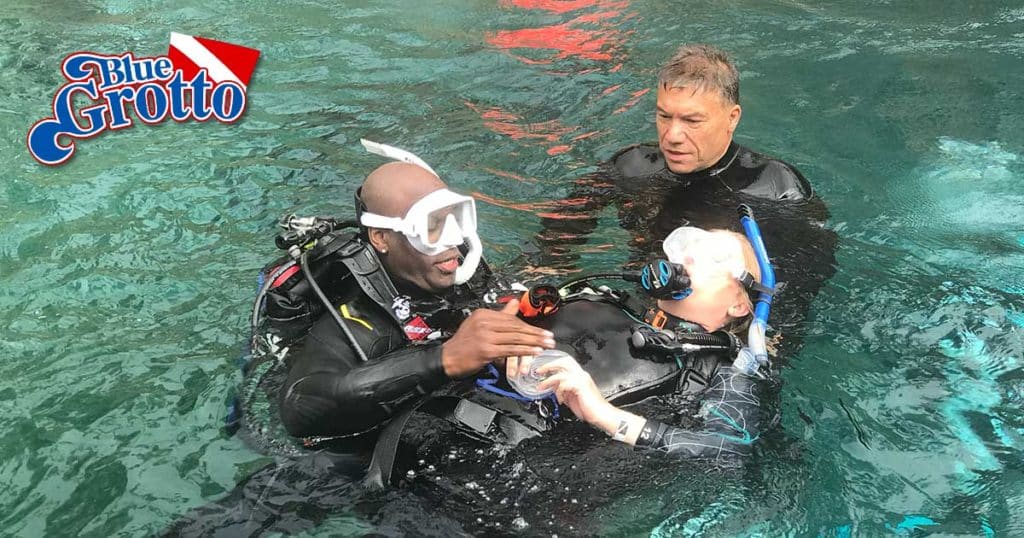Overall, diving has an excellent safety record. This doesn’t mean emergencies can’t happen. Or won’t happen to you or those around you. If they do, are you ready? More importantly, are you prepared to prevent these situations from ever occurring?
This is why everyone who dives needs Rescue Diver training. You may never need it, but if you do, you will be glad you have it. Better still, if your training helps prevent a problem, you and everyone else will be much better off. Best of all, this is training any dive instructor can provide.
Different names, same course
All recreational diver training organizations offer some sort of Rescue Diver training. Common names for this course include:
- Dive Rescue
- Rescue Diver
- Diver Stress and Rescue
Throughout this article, we’ll use the term Rescue Diver as it is the most popular. The name or the agency doesn’t matter, though, as all these courses cover the same ground.
An entire suite of courses
Becoming a qualified Rescue Diver involves more than just a single course. In addition to the Rescue Diver course, you must become certified in:
- First Aid
- CPR
- AED
- Oxygen Administration
Depending on the training agency, these courses will either be a prerequisite for Rescue Diver training or something you can take in conjunction with it. Of course, the first three courses are something everyone should learn, even if they don’t dive.
Becoming a Rescue Diver
The typical Rescue Diver course involves self-study and two days of in-water training. Dives will be limited to simulations of surfacing an unconscious/nonbreathing diver. Most of the time is spent on the surface. Topics and skills your instructor will cover include:
- Causes and prevention of dive accidents
- Recognizing potential problems
- Responding to diving emergencies
- In-water and underwater rescue techniques
- Diver extraction
- Dealing with hyperbaric emergencies
- Accident management
- Rescue Diver tools
Some agencies require Advanced Open Water certification as a prerequisite. Even if your agency does not, you should at least have equivalent training or experience to get the most from your Rescue Diver course.
Blue Grotto is the place
Many visiting instructors use Blue Grotto to conduct their Rescue Diver courses. This is training we provide to our staff as well, as this is training every dive professional should have.
Talk to your dive center or instructor if you have not yet taken the Rescue Diver course. We will see you when you do.


